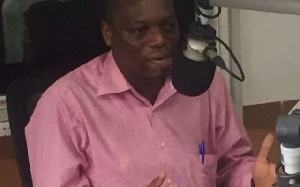One very essential element in a democracy is freedom of speech and expression which allows people to express their opinions on governance and other related issues in society either directly or indirectly.
It enables the citizenry to be part of the decision-making process in societies, thus making them indispensable in nation building. Any government that deliberately restricts her citizens from freely expressing their views, does so by depriving herself of the rich ideas of the people—which are needed to direct the government in meeting the needs, interests and aspirations of the people. That is why responsible leaders and governments always ensure that the voice of the masses is heard.
Freedom of speech is supposed to foster healthy debate and intellectual discourses that lead to the convergence of ideas and solutions intended to make our society better.
It is also to encourage others to air their views without fear or favour, intimidation or ridicule, creating an avenue to benefit from the views of others. Freedom of speech finds expression in diversity of opinions—which is a central tenet in productive discourse and debates.
When we make room for the views of others, it means that we are seeking the opportunity to know more and to grow. This can only be achieved when we are civil in our discourses, debates and utterances. Civility in our discourses makes others listen to us since it has an element of respect, and focuses the mind of the listener to the message being put across.
Civil discourses are devoid of abusing and insulting languages and unsubstantiated facts, but focus mainly on content that stimulates the mind positively towards a desirable end. They also bind society together, and enable the citizenry to appreciate the unique diversities of one another.
As a society, we need to demand that our citizenry, especially political actors engage and promote decency in their communication in order to forestall negative examples to the young and the possibility of chaos in the country. We would like to encourage our leaders, most of whom are seen as role models to be responsible in their utterances in order to deepen our democratic culture. Freedom of speech denounces irresponsible and reckless communication!
We would want to supplicate the citizenry, more especially the politicians—both the government and opposition to reflect deeply on their communication because of its possible beneficial or egregious consequences on others and society. Our discourses are supposed to build and not destroy, strengthen and not weaken, encourage and not discourage others. We build societies by promoting and encouraging civility in our discourses and not by insulting, abusing, and denigrating others. Let us be civil in our discourses for it is a measure, not only of our character, but the strength of our democracy.
Opinions of Tuesday, 5 September 2017
Columnist: Dr. Kingsley Nyarko



















